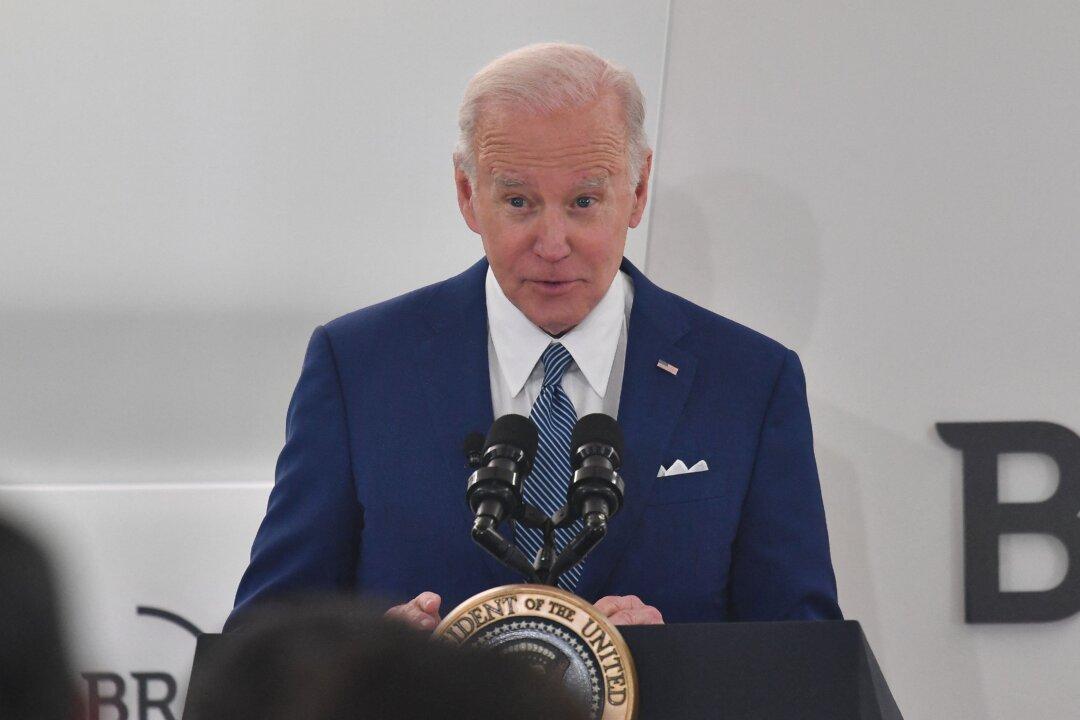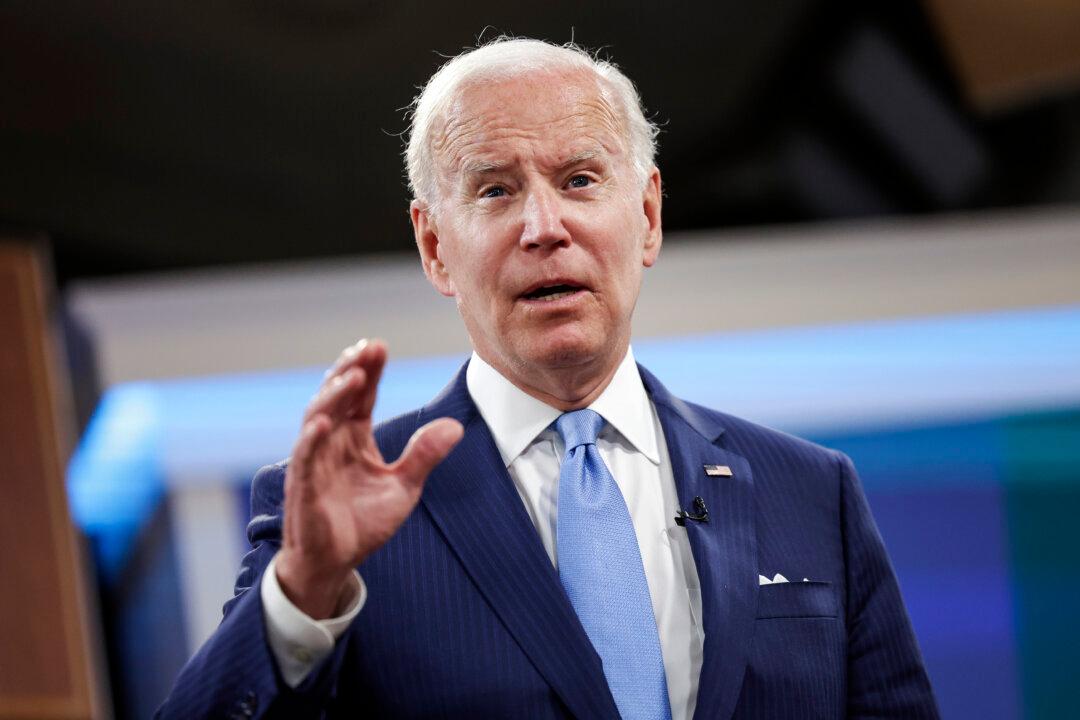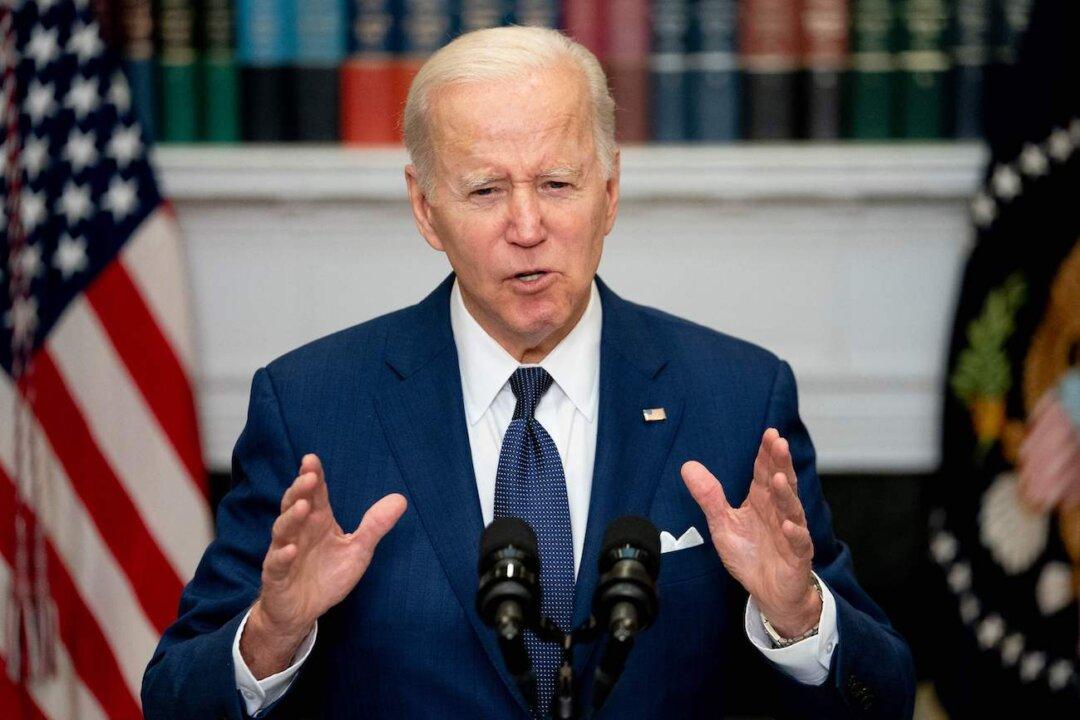President Joe Biden warned on March 23 that there’s is a “real threat” that Russia could use chemical weapons against Ukraine, as he left the White House for Europe, seeking to further unite NATO allies in opposition to Russia’s invasion and war in Ukraine.
The president is traveling to Brussels to attend an emergency NATO summit, meet with Group of Seven (G-7) leaders, and attend a European Council summit. The stated goal is to coordinate the next phase of military assistance to Ukraine and impose further economic sanctions against Russia.




